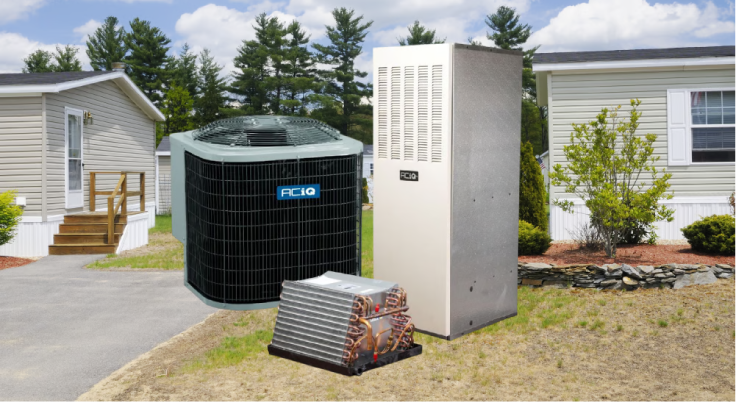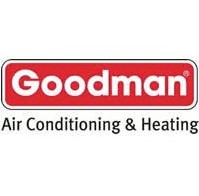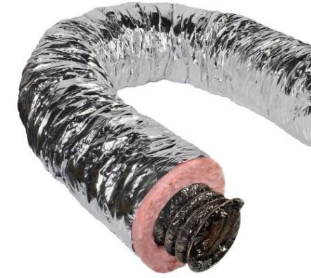It’s recommended to have your mobile home air conditioning unit serviced at least once a year, preferably before the warmer seasons start. Regular maintenance ensures efficient operation, prevents breakdowns, and extends the unit’s lifespan.
Mobile Home Buying & Sizing Guide
Mobile Home Buying & Sizing Guide
When purchasing HVAC equipment for mobile homes, ensuring the system is well-suited to the unique needs of the space is essential. HVACDirect.com is here to provide insights into selecting the right unit, including how to accurately size it for effective temperature control.
At HVACDirect.com, we take pride in offering the best for our customers. Our expertise is backed by:
- A large inventory that's in stock and ready to ship
- Vast product selection ensuring we have the proper equipment for anyone's needs
- Comprehensive knowledge and customer service promising we have your back
Product Types
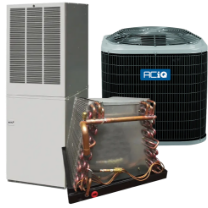
Split Systems
- More powerful heating and cooling for larger mobile homes
- Centralized system with consistent airflow throughout the home
- Often lower upfront cost
- Works well with existing ductwork for easy integration
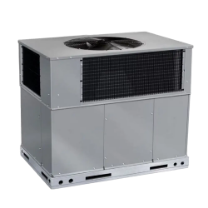
Packaged Units
- All-in-one system, no indoor unit is a space saver
- Easier maintenance with components housed in a single unit
- Simple installation, often requiring less modification
- Typically more durable in outdoor conditions
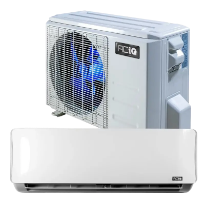
Mini Splits
- No need for ductwork, reducing energy loss
- Easier and less invasive installation
- Greater zoning flexibility for personalized comfort
- Compact and space-saving design perfect for small homes
Product Differences: Air Conditioner vs. Heat Pump
An Air Conditioner is designed solely for cooling by removing heat from the home, while a heat pump can both cool and heat the space by reversing its operation to either extract heat or release it. Heat pumps are more versatile and energy-efficient, as they provide heating during cooler months and cooling during warmer months.
Determining Factors
- Impacts the heating and cooling load requirements
- Space and zoning regulations can limit installation options
- Sun exposure and shade impact energy efficiency requirements
Square Footage:
- Even temperature distribution throughout the home
- Affects energy efficiency and utility costs. No overworking your HVAC system
- Reduces maintenance costs
House Condition:
- Window age
- Insulation quality
- Siding condition
Repair vs. Replace
When to Repair
- The unit is less than 10 years old and has a minor issue.
- The repair cost is less than half the price of a new system.
- The system still heats and cools efficiently after repairs.
- The issue is covered under warranty, reducing out-of-pocket costs.
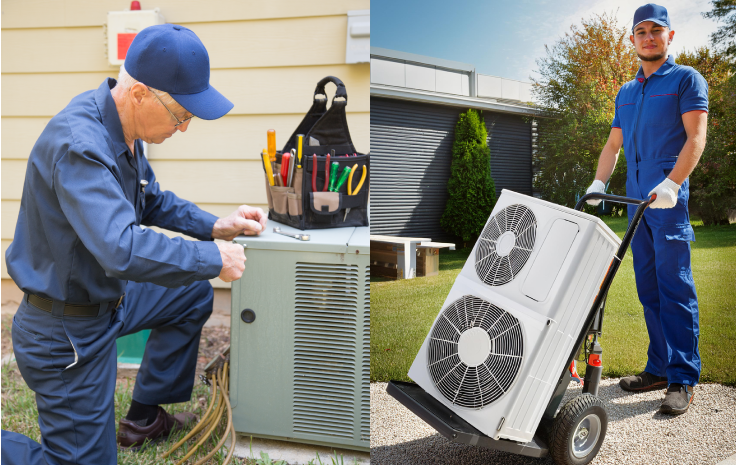
When to Replace
- The unit is over 15 years old and requires frequent repairs.
- Energy bills have increased significantly due to inefficiency.
- The repair cost is more than 50% of a new system's price.
- The system uses outdated refrigerant that is expensive or hard to find.
Examples of When it's Time to Repair Instead of Replace
Frequent and Costly Repairs
If your HVAC system requires frequent repairs and the total cost of those repairs is approaching 50% or more of the cost of a new system, it's more cost-effective to replace it.
- Example: If you've already spent $1,000+ on repairs in the past year and your system still isn’t running efficiently, a new unit will save you money in the long run.
Inefficiency and High Energy Bills
Older mobile home HVAC systems (typically 10-15+ years old) become significantly less energy-efficient, leading to higher electricity bills.
- Example: If your monthly energy bills have noticeably increased despite no major changes in usage, your system is likely working harder than it should and may need replacement with a more efficient model.
Inconsistent Heating or Cooling
If your HVAC system struggles to maintain a consistent temperature, leaving some rooms too hot or too cold, it may be a sign of failing components, poor airflow, or an undersized system.
- Example: If certain areas of your mobile home never seem to get warm in the winter or cool in the summer—despite multiple repairs—it could mean your unit is no longer capable of performing efficiently and should be replaced.
Outdated System
If your HVAC system uses outdated refrigerant, repairs and refrigerant refills can be extremely expensive and difficult to find. Upgrading to a newer system that uses up to date or eco-friendly refrigerant will be more cost-effective in the long run. Additionally, the same point can be made for parts.
- Example: If your AC is leaking refrigerant and requires an R-22 refill, the cost could be several hundred dollars, making a new, energy-efficient system a smarter investment.
Sizing
The best way to determine what size unit you are needing is to look at what you currently have. On the side of your unit, you should be able to find a sticker that looks like the one below. There, you will be able to find out information like heating BTU, tonnage, brand, and a whole assortment of other specifications.
Furnace Sticker:
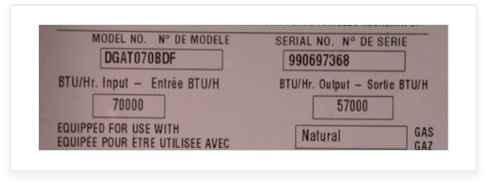
AC/HP Sticker:
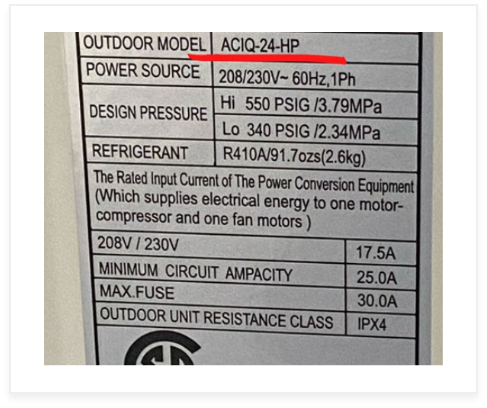
Another important piece of information to find would be information on your mobile home. This Data/VIN plate can typically be found in a kitchen cabinet, electrical panel, or bedroom closet. All of which can be used in determining your home's age, condition, and possibly square footage. On it, you should find:
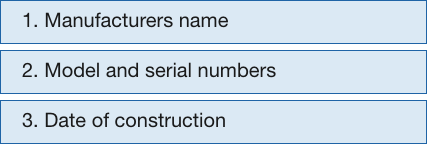
Ductwork
Replacing ductwork during a new HVAC system installation is a wise investment as it ensures optimal airflow and efficiency. Old or damaged ducts can leak air, leading to wasted energy and higher utility bills. Additionally, new ductwork can improve indoor air quality by eliminating contaminants and providing better temperature control throughout the home.
Frequently Asked Questions
The size of the air conditioner you need depends on the square footage of your mobile home and the climate. There are many factors to consider such as the age of the home and insulation quality. It is advised that you check your existing unit and try to match that as close as possible, given it was the right unit prior to needing replacement. Look for the information stickers located on your units.
To improve efficiency, regularly clean or replace filters, ensure proper insulation, seal air leaks, use ceiling fans to distribute air, and keep the unit shaded from direct sunlight. Additionally, maintaining your unit with annual professional check-ups can enhance efficiency.
Yes, you can install a central air conditioning system in a mobile home if it has existing ductwork or if you’re willing to install the necessary ductwork. Professional installation is recommended to ensure optimal performance and compliance with building codes.
Ductless mini split systems offer several benefits, including flexible installation, energy efficiency, and zoned cooling. They are ideal for mobile homes without existing ductwork and can be installed to cool specific areas independently, reducing energy consumption.
You should check and replace filters every 1-3 months, depending on dust levels, pets, and usage.
Air conditioners only provide cooling and must be paired with a furnace or another heating source if heating is also a necessity. Heat pumps provide both cooling and heating, making them more energy-efficient in moderate climates.
Why Buy From Us?
Customer Satisfaction
Our dedicated staff works hard to ensure that all orders are handled quickly and efficiently to ensure that you get what you ordered as quickly as possible.
Security
We provide a secure online shopping experience to protect your information. We also provide the option to checkout with PayPal to allow you to use a checkout service you are familiar with.
Save Money
We provide you great prices so you can save your money for the more important things in your life.
